This post may contain affiliate links. If you make a purchase through a link, I may receive a small commission, at no cost to you. These commissions help keep this website up and running, and I thank you for your support. Read my full disclosure here.
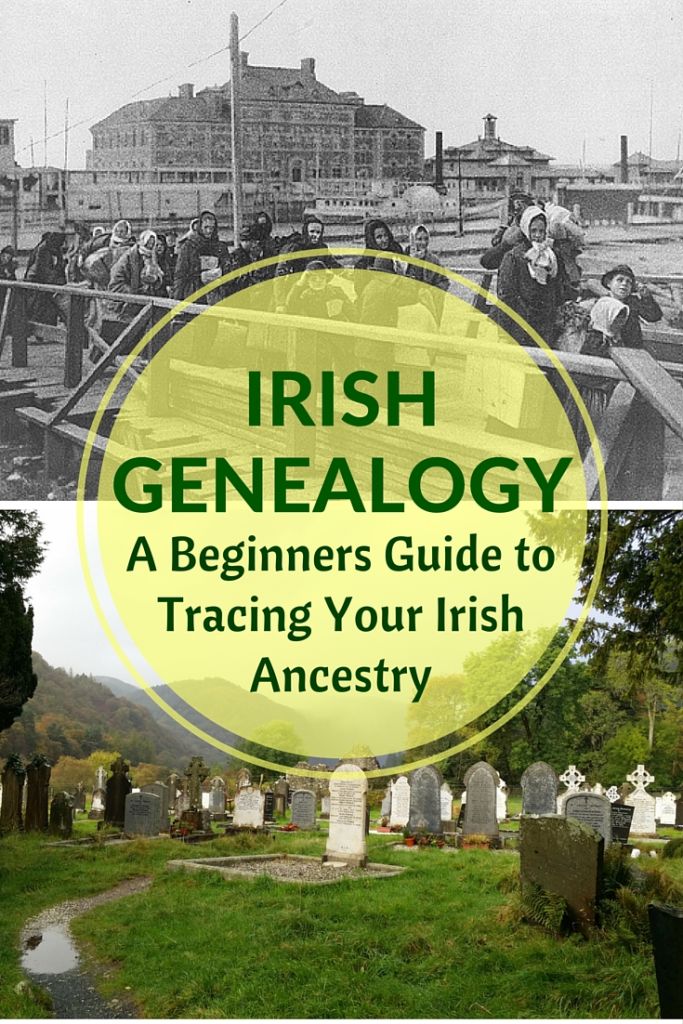
Have you commenced the exciting but daunting task of tracing your Irish roots? There are a number of factors that make researching your Irish ancestry a challenging task. For instance, due to difficult living conditions and devastating events such as the Great Famine, the Irish spread far and wide to find a better way of life for themselves and their families. Since 1700 between 9 and 10 million people born in Ireland have emigrated. Because of this mass emigration it is now estimated that there are around 80 million Irish diaspora worldwide, which includes more than 36 million Americans. Consequently, your research can end up leading you around the world.
Another major factor affecting Irish genealogy research was the destruction of records. During the civil war in 1922 many records were destroyed in a fire and during WWI many were pulped to make paper. However, don’t lose hope, because fragments of these documents remain and are now available to use in your search.
In fact tracing your Irish ancestry has become much easier as more and more historical records have been made available online. Previously a trip to Ireland was necessary to get access to these records, but now you can do your research from the comfort of your own home.
So, now you’re wondering how to get started tracing your Irish roots… Where are the best places to look? What kind of information can lead me on the path to my ancestors? This guide will provide you with the essential information you need to help you in your Irish ancestry research.
The Irish diaspora (Irish: Diaspóra na nGael) refers to Irish people and their descendants who live outside Ireland.
Getting Started: Gathering Information
Before you begin your genealogy search, try to obtain as much information about your ancestry as you can. Get in touch with as much of your extended family as possible to see what information they may hold. You may be surprised to find out that some of them may have already done some research themselves. Get copies of any documentation that you can gather such as:
- Birth, baptismal, marriage and death certificates
- Travel documents
- Family photos (and don’t forget to copy any information that may be written on the back of the photos)
- Family letters
- Address books
- Family bible where family names have been recorded.
Wherever possible, record your family history conversations to make it easier to refer to later on.
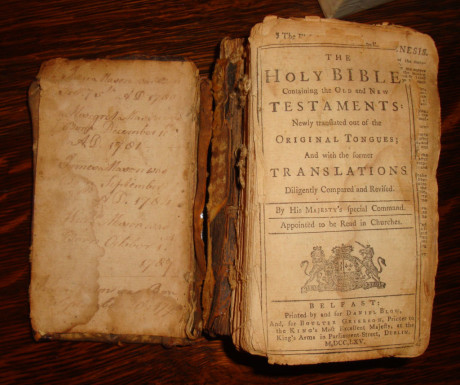
Tracing Your Irish Ancestry: Piecing Together Your Family Tree
Now that you have gathered all of the information that is available to you, you can begin to create your family tree. Start by filling in all of the information that you have on hand. Once you have completed entering all of this information, you are ready to commence your online ancestry research.
It helps to have access to old maps of Ireland to help you with your geographical search. Wrestling with the tangle of place names, townlands and districts in Ireland can be a real challenge. Place names have changed over time, changed spelling, or may have been anglicized. This is where you need Brian Mitchell’s [amazon text=A New Genealogical Atlas of Ireland, Second Edition&asin=0806316845] as your guide. This is an extremely useful book because it provides maps of each of the 32 Irish counties.
A townland (Irish: baile fearainn) is a small geographical division of land in rural areas. The townland system is of Gaelic origin, pre-dating the Norman invasion, and most have names of Irish Gaelic origin.
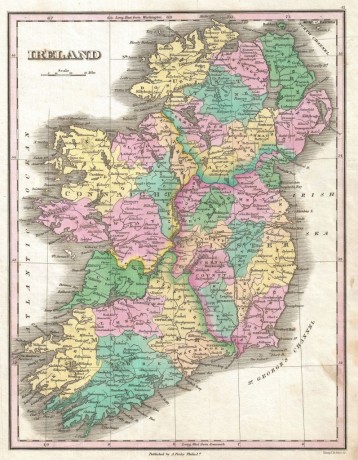
Census Records
Censuses of population are taken by governments to establish numbers and characteristics of a country’s inhabitants. Census records provide lots of valuable information about each of the people living in the house at the time it was taken, including their name, gender, religion, occupation, and place of birth.
Ireland’s first census took place in 1821, and were then carried them out every 10 years through to 1911. Due to the War of Independence, there was no census in 1921, instead it took place in 1926.
Unfortunately many census records pre-1900 were destroyed by the IRA during the Irish Civil War in 1922 when the besieged Four Courts building was set alight. Others were pulped by the government during WWI to provide a source of raw materials for making paper. But don’t lose hope, because fragments of these pre-1900 census remain and have been made available online. You can access all of the available census records via The National Archives of Ireland website.
If your relatives aren’t on the Irish census then try to find out which country they may have been in at the time of the census. Try searching the census records for those countries instead. The UK and the USA were popular countries for Irish to travel to in search of work.
Church Records
Parish registers are a goldmine of information such as births, marriages and deaths as far back as the 19th and even the late 18th century. Before 1869, the protestant Anglican Church was the official Church of Ireland. These as well as the Roman Catholic Church records are now available online at The National Library of Ireland.
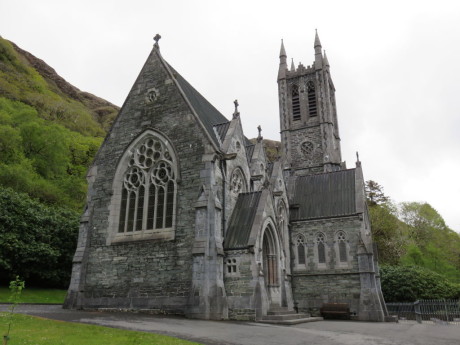
Civil Records
Catholic marriages were registered from 1845, but civil registration did not begin in Ireland until 1864. You can search the Civil Registers of Births, Marriages and Deaths, and the Church Records online using the free Irish Genealogy website operated by the Irish Department of Arts, Heritage and the Gaeltacht.
Looking through land records is a great way to find out more information on where your family lived and at what time. Try searching The Tithe Applotment Books which recorded the value of tithes (taxes) that were paid to the Church of Ireland by Irish landowners dating back to the 1820’s. These are available online at Ireland’s National Archives website.
Another great resource is the Dublin based website Find My Past. They provide subscriber’s access to the Irish Prison Registers, Landed Estates Court, the complete Griffith’s Valuation, national directories, indexes to Irish wills, gravestones and church memorials, Military records, emigration records, and obituaries.
Dog Licence Register
From 1865 the Irish government introduced new dog licensing laws to cut down on strays. From 1866 every owner was required to pay 2 shillings plus 6 pence in admin fees to register their dog at the court house. The name of the owner and their address was recorded as well as the breed, colour and sex of their dog/s were recorded in the ledger. Some records even include the name of the dog. You can access these records via the Dublin based subscription website Findmypast.ie, which has over 6 million licences available to search and even more coming.
The licences cover most of the country for the latter half of the 19th century – a time with little or no coverage. The type of dog your ancestor had can also provide you with some interesting information, for example, were they working or companion dogs?
Searching Tips
Accuracy of Details on Documents
Be aware that the details recorded on documents may not be correct. You may notice conflicting dates when comparing details on different documents, e.g. birth dates on marriage certificates may have been changed to make the person look younger or older than they were. This may be due to the person providing false information or it being recorded incorrectly. On birth certificates, the name of the father may even be fabricated to cover up family embarrassment of an illegitimate child (as happened in my family), which can send you on a false trail that quickly becomes a dead end.
Names
When searching by name, be aware that it may have been changed or altered along the way. Lots of families changed their names to ‘fit in’ when they emigrated, or it was misspelled by the writer of the name. Keep in mind that prefixes in Irish genealogy represented a word, like ‘son of’ or ‘grandson of’. Many families were interconnected as names passed from generation to generation.
Because of these variations, try not to narrow your search down too much, or use the other information that you may have at hand such as the town and/or county of their birthplace and their date of birth. By finding out more about your own family name and its origins and various spellings you can hope to open up new doors in your research and other routes for you to take until you find the right path. An excellent resource is Edward MacLysaght’s [amazon text=Surnames of Ireland: Sixth Edition&asin=0716523663]. For less common names, MacLysaght has also written a follow up book, [amazon text=More Irish Families&asin=0716501260]. These books don’t provide you detailed family history, but will help you in your surname search. If you are looking for more detailed information, then use his book [amazon text=Irish Families: Their Names, Arms, and Origins 4th Edition&asin=0716523647].
- If you’re looking through records and find the name you are looking for, don’t jump to the conclusion that this is the person you are searching for. Look for other supporting evidence that provides you assurance that you’ve found the right person.
Secret Families
It was common for the husband to leave Ireland to find work abroad in order to support his family left behind in Ireland. However, many years of separation sometimes led to the husband meeting a new spouse and having a new family. Often these families were not even aware of the existence of each other. Unfortunately many husbands consequently deserted their Irish families which sadly left them destitute.
Search Other Countries Records
If you’re having trouble finding your relatives’ records, then try to find out which country they may have travelled to and/or spent some time in and try searching the records for those countries instead. The UK and the USA were popular countries for Irish to travel to in search of work.
Northern Ireland or the Republic of Ireland?
If you plan to visit Ireland in order to visit the records, then be aware that post 1922, all Northern Ireland records are kept in Belfast and all Republic of Ireland records are kept in Dublin.
Tracing Your Irish Ancestors Webinar
Kyle J. Betit, author of [amazon text=A Genealogist’s Guide to Discovering Your Irish Ancestors: How to Find and Record Your Unique Heritage&asin=1558705775], delivers an excellent presentation about tracing your Irish ancestors. He teaches you how to explore the history sources in Ireland, including birth, marriage, and death records, church records, and census records.
Other books that Betit recommends during his webinar are:
- [amazon text=Tracing Your Irish Ancestors: Irish Genealogy by John Grenham&asin=B00820UBOU]
- [amazon text=Finding Your Irish Ancestors: A Beginner’s Guide by David S Ouimette&asin=1593312938]
- [amazon text=Irish Records: Sources for Family and Local History by James G. Ryan&asin=0916489760]
- Read my top 10 recommended books for researching your Irish Geneaology.
Additional Irish Ancestry Resources
- Top 10 Books for Tracing Your Irish Genealogy: Whether you’re a novice or more advanced, these top 10 Irish genealogy books will provide you with essential information for your Irish ancestry research.
- 15 Essential Irish Genealogy Websites: These 15 websites will be essential in your Irish ancestry research and include 11 free and 4 subscription websites.
- Forums: Join these forums to get access to a large community of experienced and knowledgeable family historians who will do their best to help you.
- Rootschat.com – Specifically the Ireland forum
- Boards.ie – Specifically the Genealogy forum


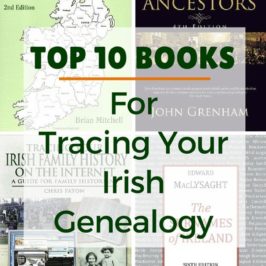
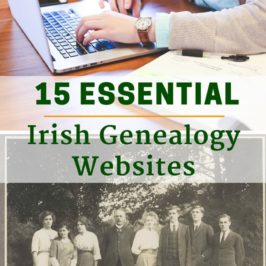
kathleen sheehy
I AM HAVING TROUBLE WITH THE OLD LANGUAGE OF THE RECORDS ANS OF COURSE THE HANDWRITING. YOU SEE, O’CONNOR, DALY, ARE JUST TWO OF THE NAMES THAT HAVE HUNDREDS OF REPLIES FOR THEM. STILL, A GREAT SITE, HELPFUL AND EASILY READ. THE DEFINITIONS ARE AGREAT HELP AND VERY INTERESTING.